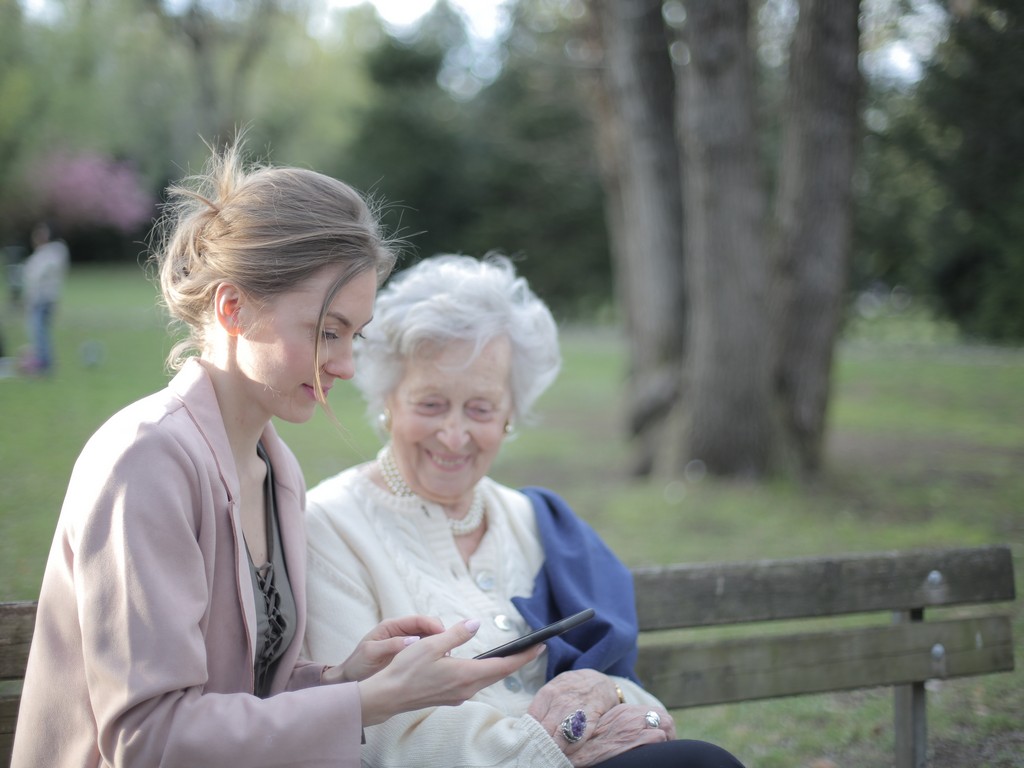Worldschooling: How Unschooling Can Help Your Child Learn? Worldschooling is a form of homeschooling that involves traveling and experiencing the world as a means of education. Unschooling, on the other hand, is a type of homeschooling that allows children to learn on their terms, without a set curriculum or schedule. When combined, these two approaches can provide a unique and effective way for your child to learn.
By allowing your child to learn through travel and exploration, you are allowing them to experience different cultures and perspectives firsthand. This can help them develop a deeper understanding and appreciation of the world around them.
Furthermore, unschooling allows your child to learn at their own pace and follow their interests. This can lead to a more personalized and engaging learning experience, where your child feels more invested in their education. In addition, unschooling can help foster a love of learning and a natural curiosity that can serve them well throughout their lives.
Of course, world schooling and unschooling may not be for everyone. It requires a lot of flexibility and a willingness to adapt to new situations.
Top Unschooling Podcasts: Where to Find Inspiration and Education
If you’re interested in exploring unschooling further, podcasts can be a great resource for inspiration and education. Here are a few top unschooling podcasts to check out:
1. Exploring Unschooling – Hosted by Pam Laricchia, this podcast features interviews with unschooling families and experts, as well as discussions on various unschooling-related topics.
2. Fare of the Free Child – Hosted by Akilah S. Richards, this podcast focuses on the experiences and perspectives of people of color who are unschooling or interested in unschooling.
3. The Unschool Files – Hosted by Amy Childs, this podcast features interviews with unschooling parents and children, as well as discussions on topics such as parenting, education, and learning.
4. The Unschooling Life – Hosted by Jan Hunt, this podcast explores the philosophy and practice of unschooling, as well as related topics such as natural parenting and living simply.
Interest-Led Learning: How Unschooling Can Help Your Child Discover Their Passions
Interest-led learning is a key component of unschooling. By allowing your child to follow their interests and passions, you are allowing them to take ownership of their education and learn in a way that is meaningful and engaging for them.
Here are some ways in which unschooling can help your child discover their passions:
1. Freedom to Explore – Unschooling allows your child to explore their interests in a way that traditional schooling may not. They have the freedom to delve deep into a subject they are passionate about, rather than just skimming the surface.
2. Time to Pursue Passions – Unschooling provides your child with the time to pursue their passions without the constraints of a rigid schedule. This can lead to a more in-depth understanding of the subject matter and a stronger connection to it.
3. Opportunities for Real-World Learning – Unschooling often involves real-world experiences, such as travel, volunteering, or internships, that can help your child discover their passions. These experiences provide a hands-on approach to learning.
Unschooling Success Stories: Real-Life Examples of How Unschooling Works
Unschooling can be a controversial topic, but many families who have chosen this path have seen great success with it. Here are a few real-life examples of unschooling success stories:
1. Alex and Sage Herr, founders of the Unschool Adventures program, were unschooled themselves and credit their education for their entrepreneurial spirit and ability to think outside the box. They started their own adventure travel company and have led trips for unschoolers around the world.
2. Taylor Wilson, a young unschooled from Arkansas, became interested in nuclear physics at a young age and built a working nuclear fusion reactor in his garage at age 14. He went on to attend MIT and is now a successful entrepreneur in the energy industry.
3. Kira and Jay Decker, parents of five unschooled children, have seen their children thrive and pursue their passions. Their oldest daughter, Autumn, started her non-profit organization at age 16 and has since been recognized by the White House for her work.
The Power of Child-Led Learning: How Unschooling Can Benefit Your Child
Child-led learning, also known as unschooling, is an educational approach that allows children to take the lead in their learning. This approach can have many benefits for children, including:
1. Increased Motivation: When children are allowed to pursue their interests and passions, they become more motivated to learn. They are more invested in the learning process and are more likely to retain the information they learn.
2. Individualized Education: Each child has a unique learning style, and unschooling allows for a more individualized approach to education. Children can learn at their own pace and in their way, which can lead to a deeper understanding of the material.
3. Improved Critical Thinking Skills: Unschooling encourages children to think critically and problem-solve. By pursuing their interests, children are often faced with challenges that require creative and innovative solutions.
4. Real-World Learning Opportunities: Unschooling often involves real-world experiences, such as internships, volunteer work, and travel. These experiences provide children with hands-on learning opportunities that can be more meaningful.
Unschooling vs Traditional Schooling: Why Unschooling Wins
Unschooling and traditional schooling are two very different approaches to education. Here are some reasons why unschooling may be the preferred option for some families:
1. Flexibility: Unschooling allows for a more flexible schedule and approach to learning. Children are not bound by a rigid curriculum or schedule and can learn at their own pace.
2. Individualized Learning: Unschooling allows children to learn in a way that suits their individual needs and learning style. This can lead to a deeper understanding of the material and a more enjoyable learning experience.
3. Focus on Interests: Unschooling allows children to pursue their interests and passions, which can lead to a more motivated and engaged learner.
4. Real-World Learning: Unschooling often involves real-world experiences, such as internships, volunteer work, and travel. These experiences provide children with hands-on learning opportunities that can be more meaningful and memorable than traditional classroom learning.
5. Less Stress: Unschooling can be less stressful for children and parents alike, as there is less pressure to perform.
Most Favorite Ways Unschooling Rules
Here are some ways that unschooling can be beneficial for children:
1. Child-led learning: Unschooling allows children to take the lead in their learning. This means that they can focus on topics that interest them, and pursue them in a way that suits their learning style.
2. Flexibility: Unschooling offers a flexible approach to learning that can be tailored to the needs of the child. This means that children can learn at their own pace, and take as much time as they need to fully understand a topic.
3. Real-world experiences: Unschooling provides opportunities for children to learn through real-world experiences such as travel, internships, and volunteer work. This can be a more engaging and memorable way to learn than traditional classroom learning.
4. Creativity: Unschooling encourages creativity and innovation in children. By allowing them to pursue their interests, children can develop their unique ideas and approaches to problems.
Self-Directed Learning: How Unschooling Fosters Independence and Responsibility
Self-directed learning is a key aspect of unschooling. By allowing children to take the lead in their education, unschooling fosters independence and responsibility in children. Here are some ways that unschooling can help children develop these qualities:
1. Ownership of learning: Unschooling encourages children to take ownership of their learning. This means that they are responsible for deciding what to learn, how to learn it, and when to learn it. This helps children develop a sense of responsibility for their education.
2. Self-motivation: By pursuing their interests and passions, children in unschooling environments are often highly motivated to learn. This self-motivation helps them take responsibility for their education and become self-directed learners.
3. Decision-making skills: Unschooling requires children to make decisions about what to learn and how to learn it. This helps them develop decision-making skills and learn to take responsibility for their own choices.
4. Time management: Unschooling allows children to learn at their own pace and on their schedule.
Project-Based Learning: How Unschooling Encourages Creativity and Innovation
Project-based learning is an important aspect of unschooling. By allowing children to pursue their interests and passions, unschooling encourages creativity and innovation. Here are some ways that unschooling can help children develop these qualities through project-based learning:
1. Choice and autonomy: Unschooling gives children the freedom to choose their projects and pursue them in a way that suits their interests and learning style. This choice and autonomy can foster creativity and innovation by allowing children to explore their ideas and methods.
2. Collaboration: Unschooling often involves collaboration with others, whether it be peers, mentors, or family members. This collaboration can lead to new ideas and approaches, as well as opportunities to learn from others.
3. Real-world applications: Unschooling projects often involve real-world applications, such as creating a business, building a robot, or designing a website. This can help children see the practical applications of their learning, which can inspire them to come up with new and innovative ideas.
4. Problem-solving: Unschooling requires children to identify problems and find solutions.

Meet Helen, a passionate educator and Montessori expert with over 15 years of experience in the field. She holds a Bachelor’s degree in Education and a Master’s degree in Montessori Education. Helen’s love for the Montessori method began when she was introduced to it during her own childhood education. Since then, she has dedicated her career to promoting the Montessori approach as a way to help children develop their full potential. Through her work as a teacher, consultant, and writer, Helen has helped countless parents and educators understand and implement the Montessori philosophy in their own lives. Her articles and books have been published in various education journals and she has been invited to speak at conferences around the world. Helen believes that every child has the potential to thrive and that Montessori education provides the tools to make that happen.
